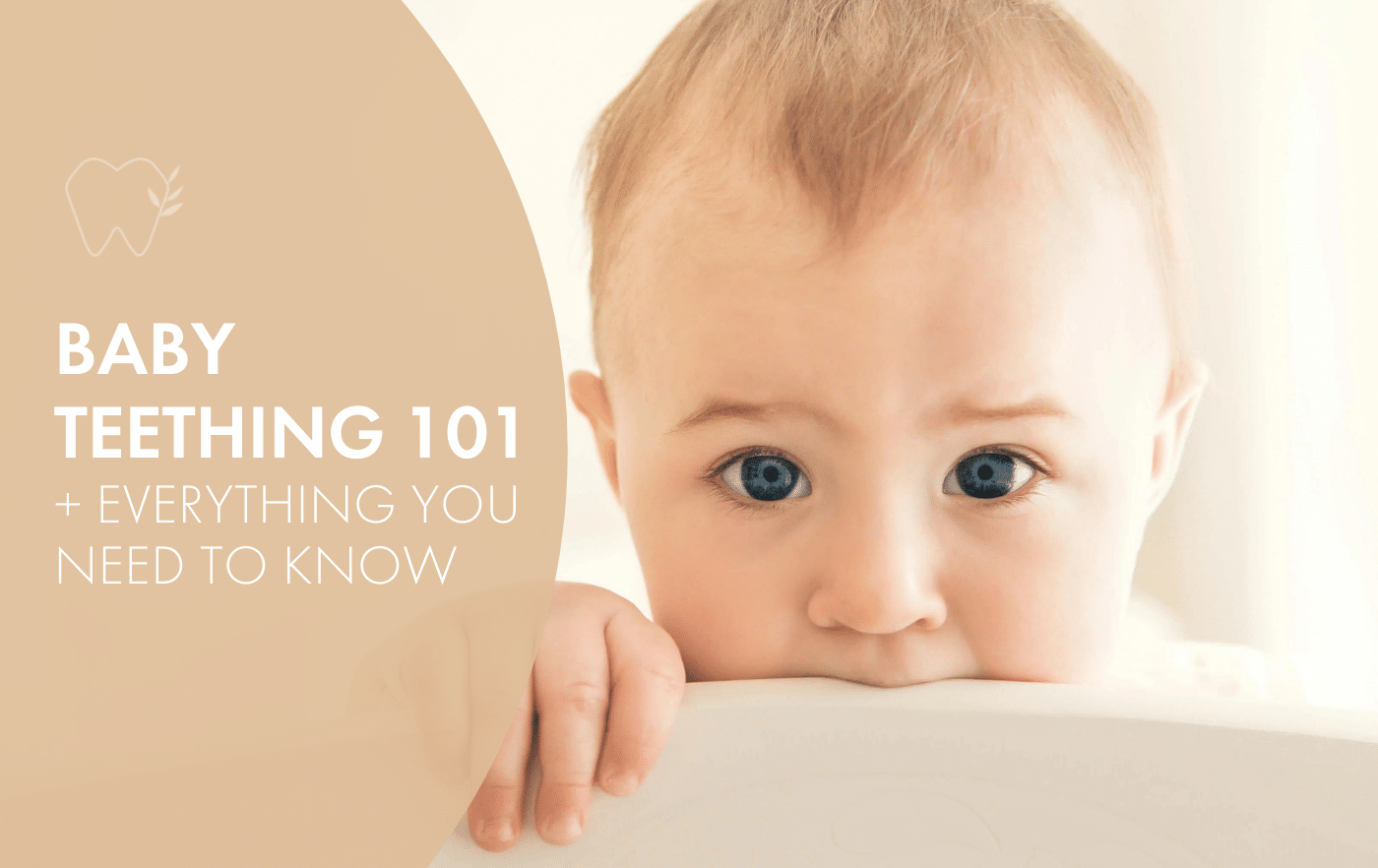
Baby Teething 101: Everything parents need to know about the teething process
We get it. Being a parent is hard, particularly when your child is uncomfortable. And one of the key causes of discomfort for young children is teething.
Although the teething process varies from child to child, they all experience some level of discomfort, which can be stressful for parents. However, with a little preparation, there are things parents can do to help ease their child’s pain and set them up for a lifetime with a happy, healthy smile.
So, if your child is teething and you’re not quite sure how to help, here are a few commonly asked questions about the teething process and a few tips on how to reduce discomfort.
Common teething questions
What is baby teething?
Teething is when a baby’s teeth first come through the gums. Babies are born with 20 primary teeth below their gum line. Teething begins when these teeth start to make their way through the gum line and into the mouth.
How do you recognise your child is teething?
Parents of teething children often don’t recognise the symptoms when they first begin because they can be similar to those of other ailments. If you notice any of the following symptoms in your child, it’s a good sign the teething process has begun:
- Change in mood
- Excessive drooling
- Rash, chapping or redness around the mouth
- Frequent biting, chewing or sucking
- Low appetite or refusal to eat
- Ear pulling and cheek rubbing
- Difficulty sleeping
When does teething start?
Children can start teething anywhere from three to twelve months, with most first teeth erupting around the six-month mark. However, the teething process varies from child to child, so there’s nothing to worry about if your 10-month-old has fewer teeth than your friend’s 6-month-old.
How long does teething last?
Most teeth will take several days to push all the way through, which means a few days of discomfort for your child. Typically, discomfort starts three to four days before a tooth pushes through the gum and lasts two to three days after.
The entire teething process, however, is spread over a few years. Most children finish teething while they’re two or three.
How to relieve the symptoms of baby teething?
This is the most commonly asked question by parents with teething children. There are a variety of remedies to help reduce teething symptoms. If your child is experiencing difficulty, try out the following:
- Teething toys: Most children stores sell toys made of plush or soft rubber for children to chew on. Biting down on them can bring relief to the gums.
- Cold cloth: Placing a clean, damp cloth in the fridge or freezer before allowing your child to chew on it can reduce swelling.
- Cold food: Similar to the cloth, feeding your child cold food can give them a chance to eat while relieving discomfort. Foods such as applesauce, yoghurt and frozen fruit are great options.
- Gum massage: Parents with clean hands can gently rub painful areas to help soothe pain.
How can I help my child’s teeth develop properly?
The best thing a parent can do for their child’s dental health is establishing a hygiene routine early. Dental decay can affect all teeth, even those that just grew in, so it’s best to start brushing right away. Parents can gently rub or brush their child’s teeth with water until the child is old enough for toothpaste, at around three years old.
When to see a professional
Although it can be overwhelming when your child starts teething, there’s no need to rush to the dentist right away. It’s best to bring your child for their first dentist visit when they turn two.
From there, your dentist will examine their teeth and jaw to ensure they’re growing as they should be. They also will be able to detect any potential issues early so you and your child can address them as they grow.
Our dentists love creating personal connections with children by showing them how to brush their teeth correctly. We’ll also work with parents to create a healthy diet that will keep their kids’ teeth in the best possible condition.
If your child is ready for their first check-up, be sure to book an appointment with The Grove Dental. Our friendly team is ready to help your child maintain their sparkling smile.



